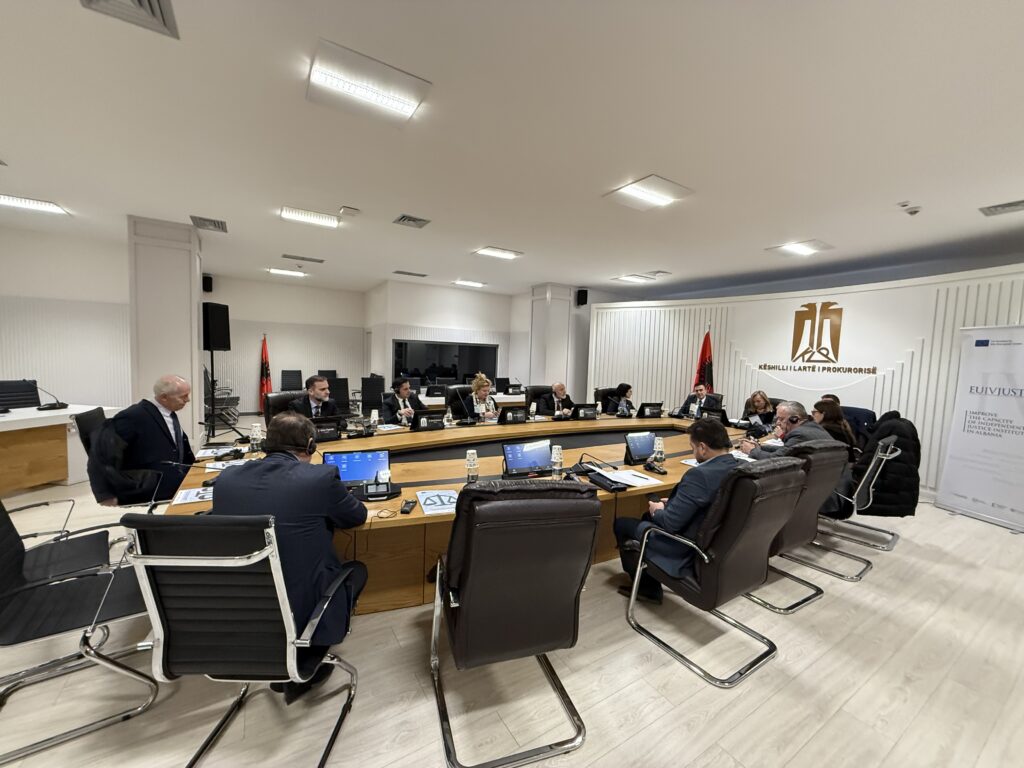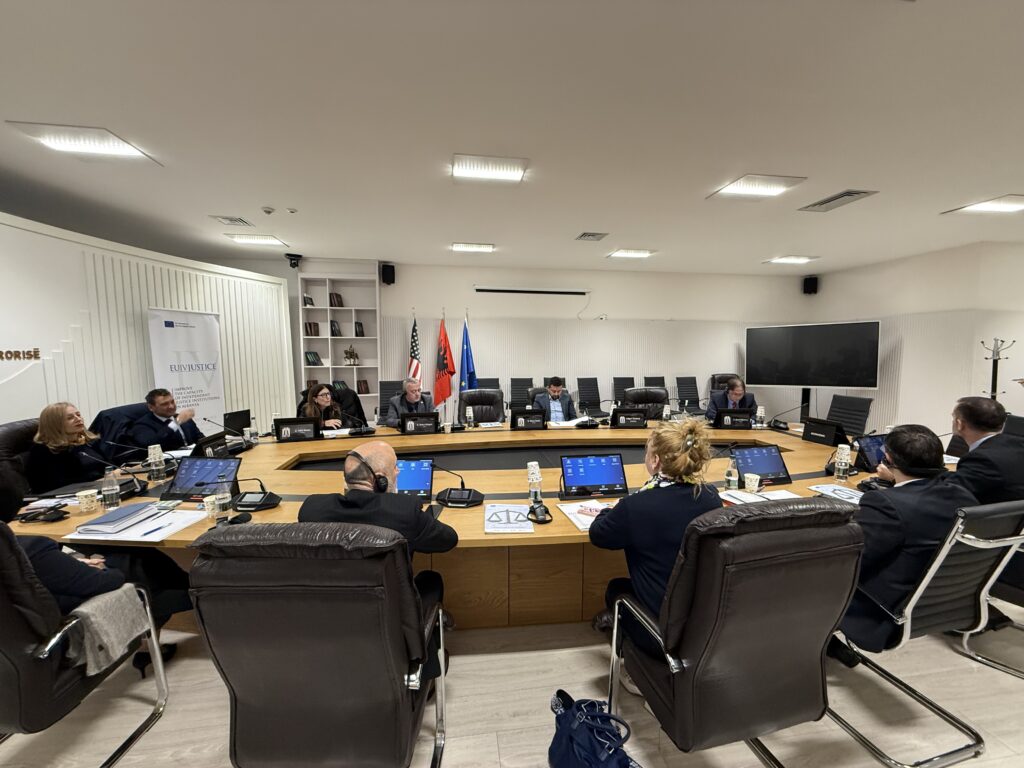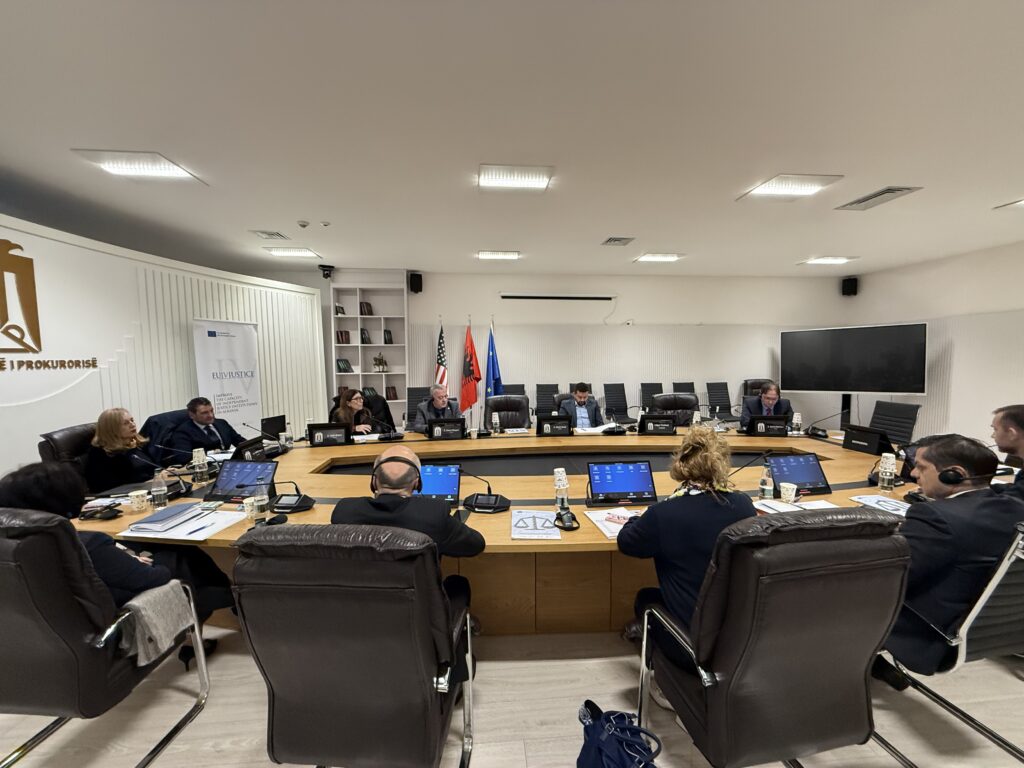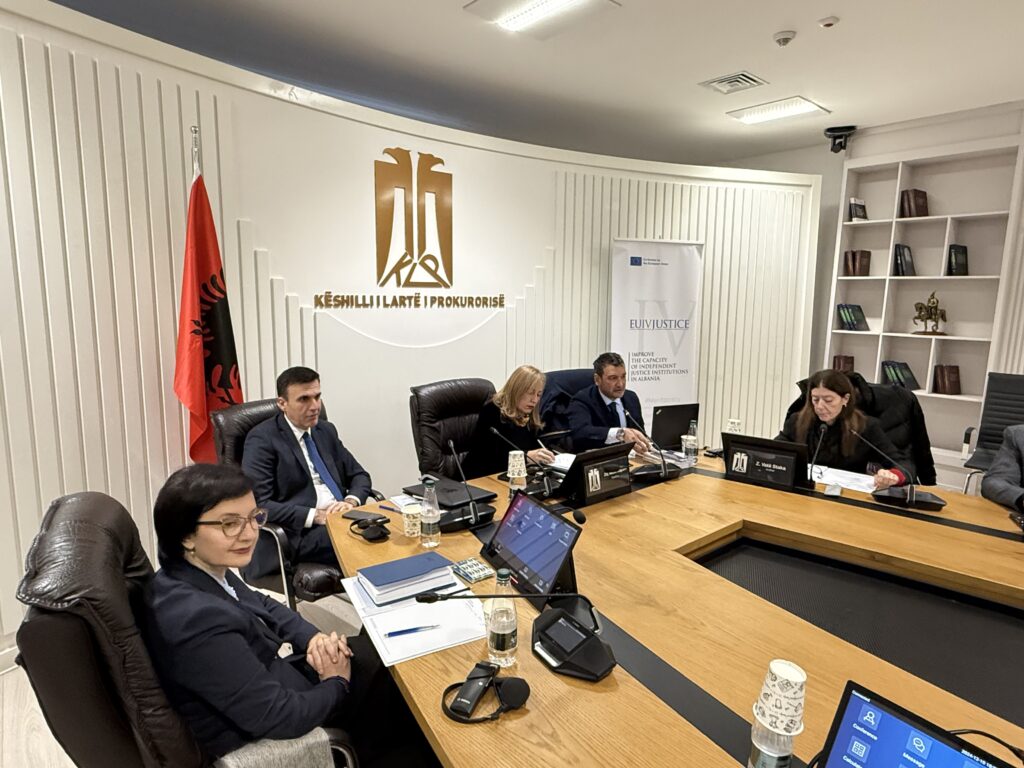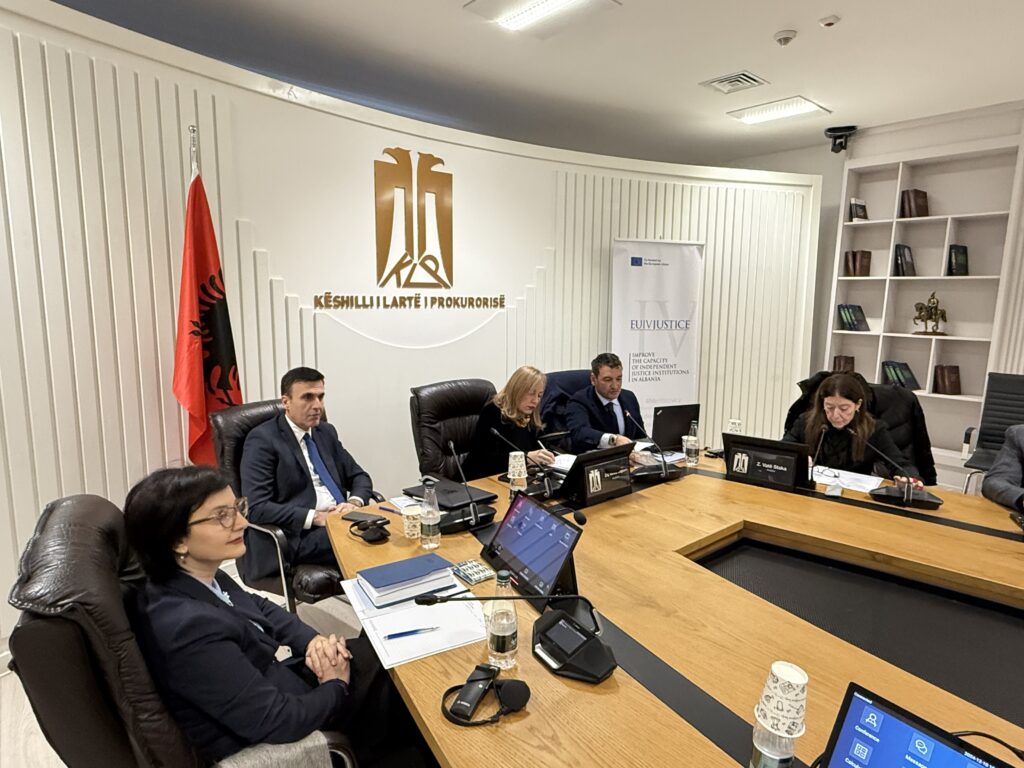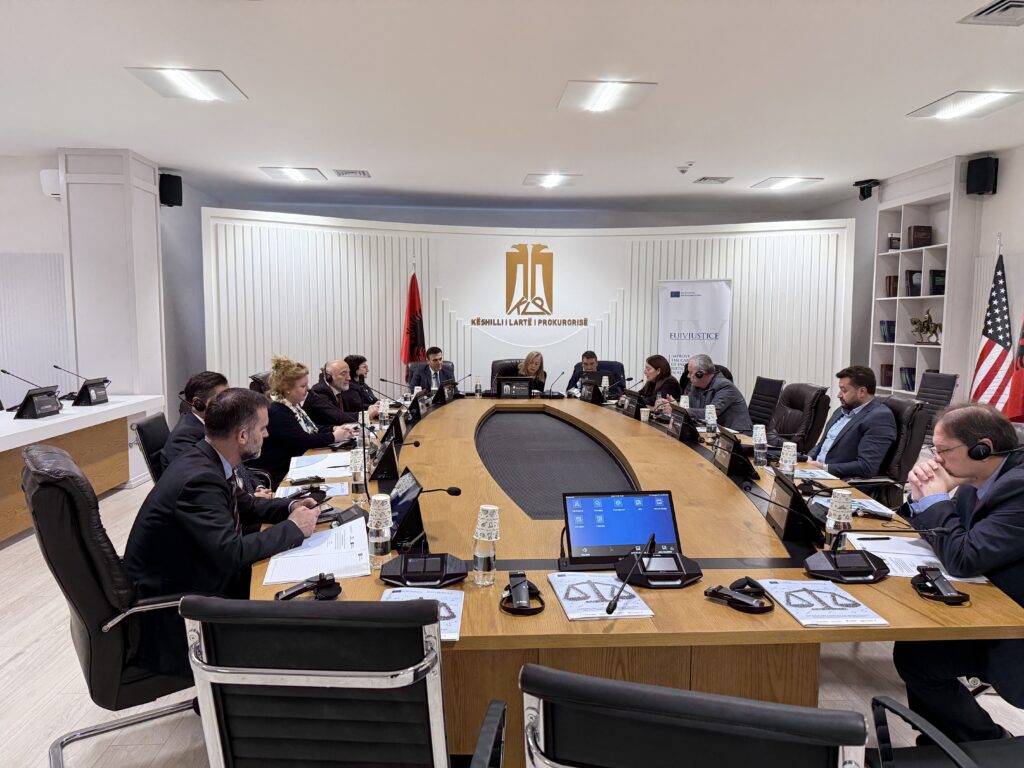- “Abdi Toptani” Street, Torre Drin Building, 10th floor, Tirana, Albania
- info@eu4justice.al
- Call Us : +355 (0) 4 562 0550
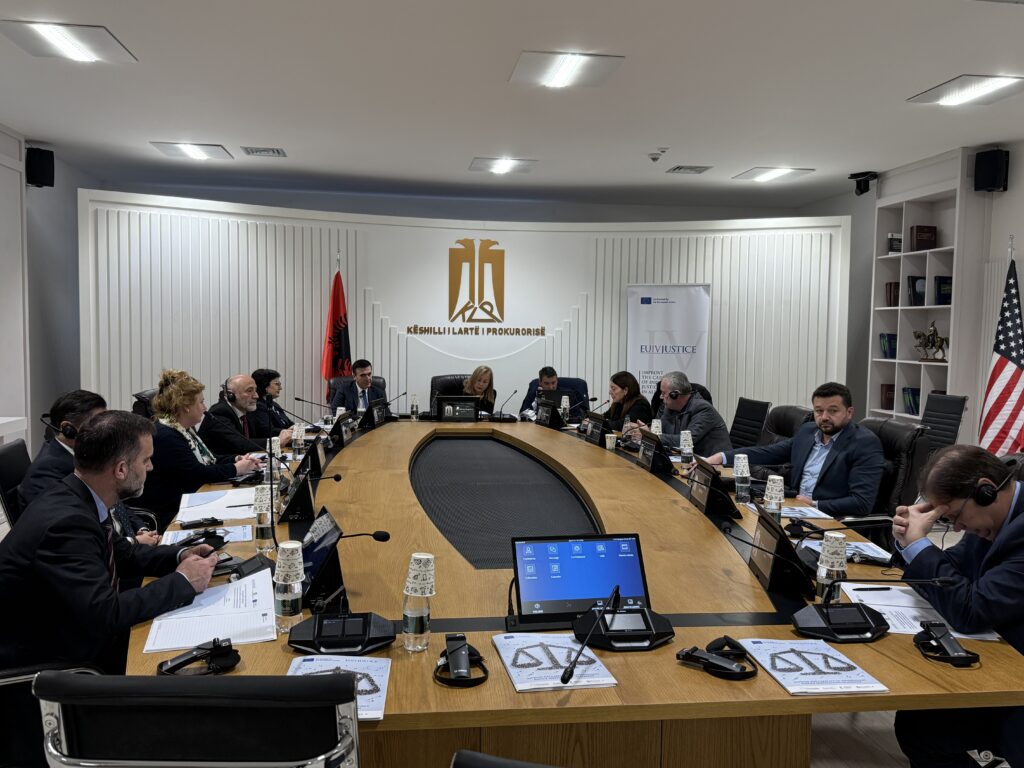
‘Discussing possibilities and modalities to enhance synergies on cross-cutting activities and institutional cooperation of HPC and GPO for the prosecution system to become functional’
On December 10, 2024, the High Prosecutorial Council (HPC), in collaboration with the EU4Justice Project, convened a Roundtable with the General Prosecution Office (GPO). The objective was to explore strategies to strengthen synergies among institutions, ultimately enhancing the functionality and efficiency of the prosecutorial system. EU4Justice experts proposed that both institutions could concentrate on forming a joint working group, aiming to balance approaches and focus on core values such as the independence, status, and career of prosecutors, as well as the efficient organization and functioning of prosecution offices.
The HPC Chairwoman, the General Prosecutor, and HPC members discussed cross-cutting activities where alternative solutions should be sought through permanent cooperation. Key areas included improving communication between the GPO and the HPC, and between the GPO and the Prosecution Offices across the country. Organizationally, the appointment of chancellors and the enhancement of their management effectiveness in prosecution offices were deemed crucial.
Participants also agreed on the importance of joint efforts to implement an integrated Case Management System in the near future. This system would be essential for managing and improving the functioning of prosecution offices nationwide, as well as for the Council to process and analyze quality data for exercising its competencies. Additionally, continuous communication was seen as a way to reduce potential conflicts between the chairpersons of prosecution offices, providing them with tools to boost efficiency while ensuring accountability. HPC Members expressed that the only viable solution for improving cooperation, and the well-functioning of the prosecutorial system is to explore alternative solutions within the legal framework. This was further emphasized by the representative of the European Union Delegation in Albania, who noted that amending the current legislation is not feasible, thus necessitating the exploration of such alternatives.


